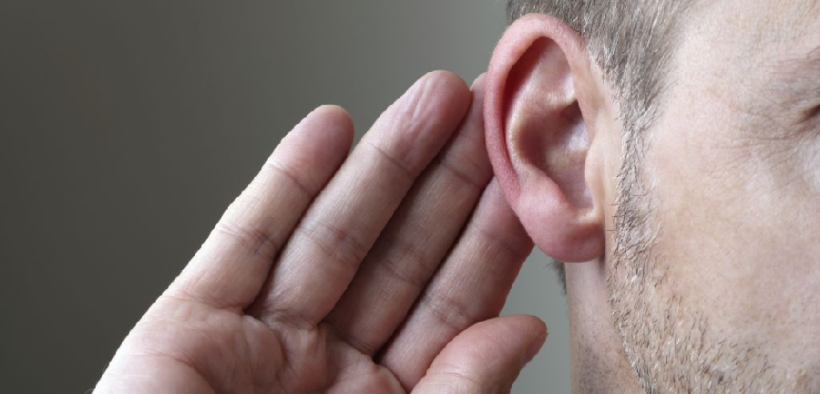Sudden hearing loss – causes, symptoms and treatment
Share

Sudden hearing loss without a known cause occurs in 5 to 20 people per 100,000 according to estimates from the United States. Sudden hearing loss is defined as the onset of hearing loss over a period of 72 hours or less in one or both ears. It is considered an emergency medical condition due to possible glucocorticoid therapy if recognized early.
Audiometric criteria for diagnosis take a reduction in hearing quality of at least 30 decibels (dB) that affects at least 3 sound frequencies. In hearing loss in one ear, the hearing threshold is raised to 26 dB, and in deafness above 96 dB.
Hearing loss
Hearing loss affects all age groups, from newborns to the elderly, impairing children’s speech and language development or social relationships. Hearing can be impaired at multiple levels of the auditory pathway: from the external auditory canal, the auditory conduction system, the cochlea, the auditory nerve, or the auditory cerebral pathways.
Furthermore, it is divided into conductive or conductive hearing loss (damage to the outer or middle ear) and sensory-neural or sensory (damage to the cochlea or cochlear spiral node – spiral ganglion). But there is also a combination with components of conduction and sensory damage, the so-called. mixed type of hearing loss.
Hearing problems
The causes of hearing problems are:
- obstruction (difficulty conducting) or disease of the outer or middle ear that prevents the conduction of auditory stimuli to the inner ear,
- accumulation of cerumen,
- otitis media,
- sclerosis (hardening) of the auditory ossicles in the middle ear,
- degenerative processes during aging (presbycusis),
- genetic mutations (hereditary hearing impairment, common in newborns),
- noise exposure (daily work in an environment without adequate protective equipment),
- some drugs (aminoglycoside antibiotics, cisplatin),
- a combination of smoking, obesity and chronic diseases such as diabetes,
- autoimmune cause,
- acoustic neuroma (benign tumor on the auditory nerve),
- tumors of the internal auditory canal (rarity).
Sudden hearing loss in one ear
The cause is unknown, but it is thought to be a virus, vascular or autoimmune disease. The diagnostic procedure involves testing for causes that can otherwise be identified and then excluding them to determine the exact cause.
Most sufferers notice hearing damage in the morning as soon as they wake up, and others when they use the phone and put it to a sore ear. Some patients reported hearing a loud, warning “pop” sound a moment before hearing loss.
Sudden hearing loss – treatment
The most common approach is corticosteroid therapy, which reduces inflammation, swelling and helps the body fight disease. They used to be given orally in tablet form, but a clinical study in 2011 showed a successful intratympanic (through the eardrum) injection of corticosteroids. It is recommended to start this therapy as soon as possible, even before the arrival of all findings.
If the cause of the sudden hearing loss, such as an infection, is found out, the doctor prescribes antibiotics, and if certain medications have caused the condition, they stop taking them immediately.
If your hearing is severely impaired and you do not respond to any line of treatment, your audiologist may recommend the use of hearing aids or the installation of an artificial cochlea.
Hearing aids
Electronic devices that amplify sound stimuli received in the ear are currently the most commonly used aid in hearing difficulties. Not all devices are the same and must be adapted to the needs of the individual – given his requirements, social role and communication.
There are several forms and types of hearing aids: behind the ear, inside the ear canal, in the ear canal, depending on how much they amplify the sound and eliminate unnecessary ambient noise, and the ability to adjust the frequencies.
Although hearing loss is a common occurrence, especially in the elderly population, unfortunately many sufferers still do not use hearing aids on a daily basis and do not cooperate well with the doctor. The biggest motivation should be improved communication with close people and less social isolation.


















Social Media